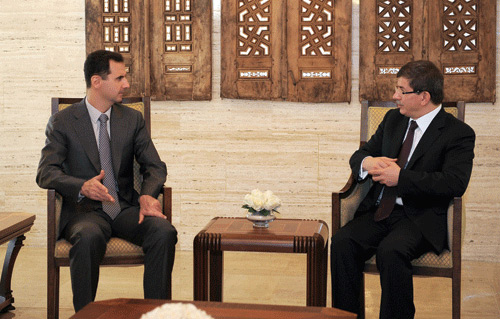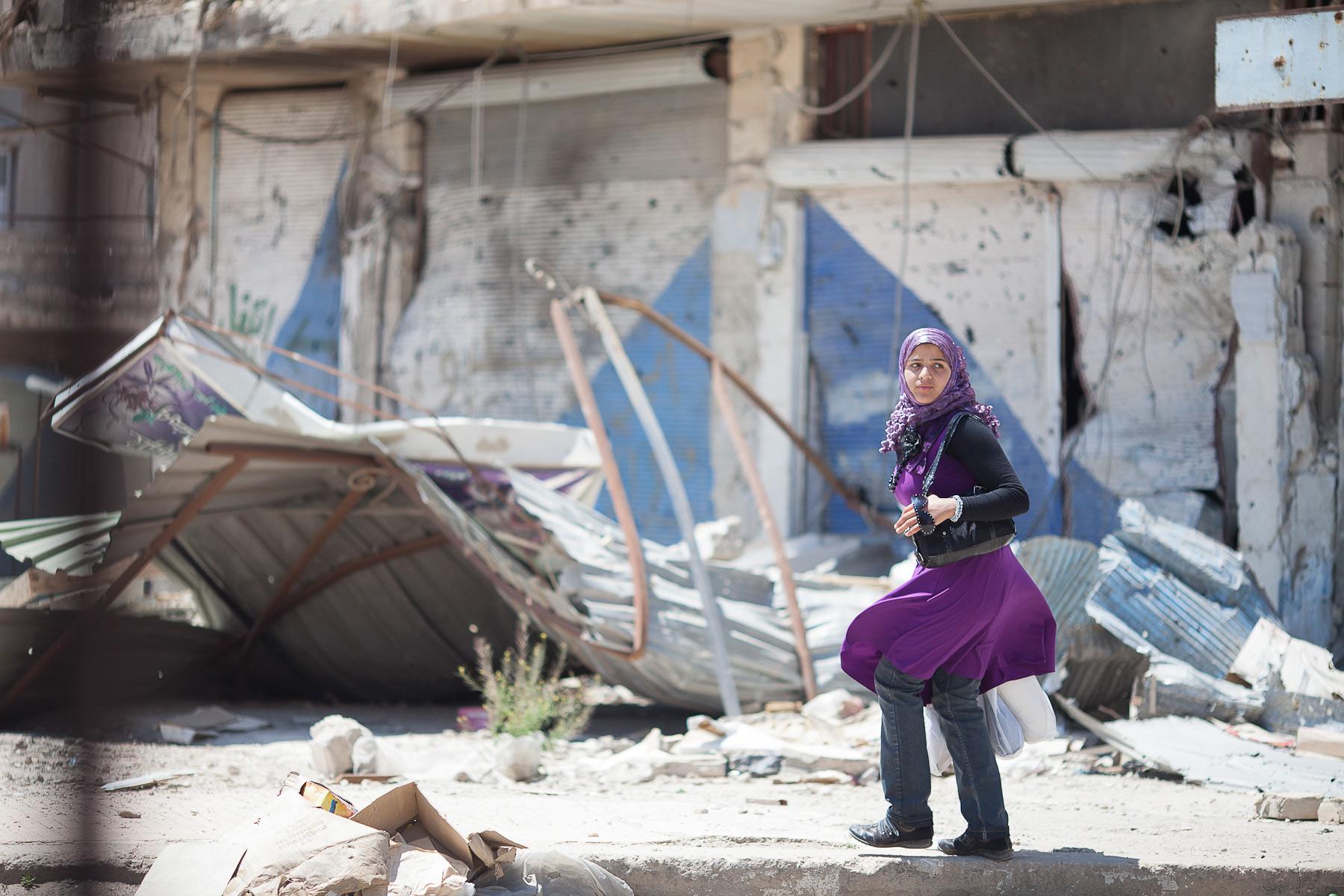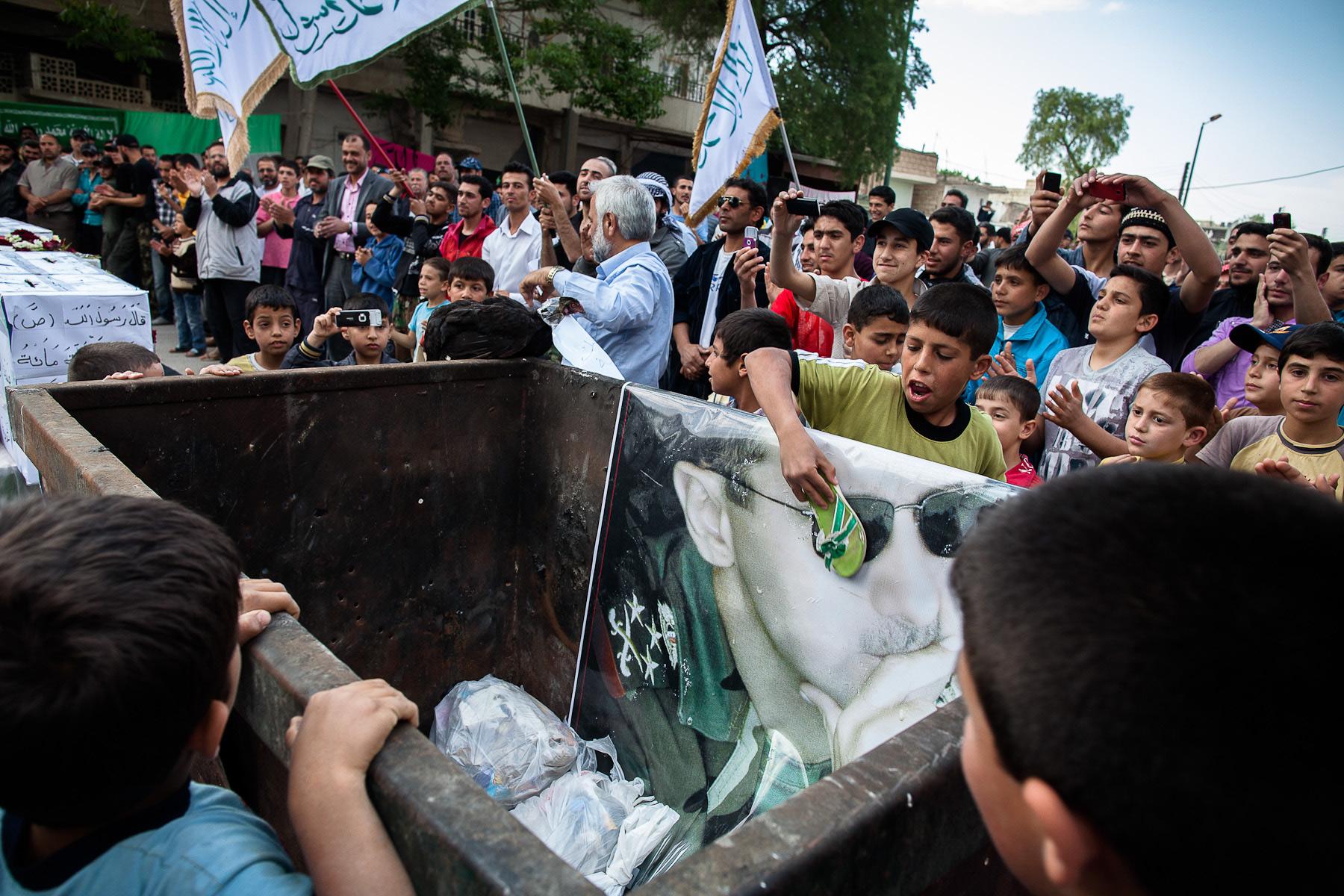If events in Syria are a tragedy, its monumental regional and international cast combines to weave an intriguing plot rivaling incomplexity the tales of Greek playwright Euripides. Their public utterances areas striking as some lines in, say, Medea, and never was the need for a Euripidean deus ex machina — an unlikely intervention by a higher power to resolve a conflict — more urgent. Some 2,500 years ago, the mythical Medea shocked audiences by slaughtering her children off stage. She justified the infanticide as retribution for her philandering husband’s unfaithfulness. Nowadays, it is the mother country torturing and mowing down its children in a remorseless fight against subversive minors.
Meanwhile, political actors on the global stage gravely offer advice that to many in the audience must sound like — well, Greek. Syria’s western neighbor dispatched its courier (many times) to urge an immediate end to the violence. “Our initiatives had positive results,” said Turkey’s prime minister, Recep Tayyip Erdogan, in an aside to that portion of the auditorium containing his supporters; “The important thing is that Damascus took the first step less than 24 hours after I visited the country,” added Ahmet Davutoglu, his trusty sidekick and main emissary to foreign lands. Yet even as the oppressors were promising to mend their ways and introduce democratic family counseling, their tanks were racing from Hama to continue target practice in another town. Syrian leader Bashar al-Assad put those “positive results” in a different light. “In general, we meet with officials from other countries, take advice, and discuss their experiences, especially countries whose societies resemble ours, but when it comes to a decision, we don’t allow any country, near or far, to interfere.”
Cue the passionate public pleas from myriad actors, none of whom seem to be listening to the others.
Iranian President Mahmoud Ahmadinejad said he was grateful to Erdogan for opposing, as the Iranian news agency IRNA reported, “the US-led Western alliance of NATO’s military invasions,” saying that “foreign meddling in regional matters only exacerbates the state of affairs.” The audience may have scratched its collective head at this. NATO has led aerial strikes in Libya while military action against Syria is an idea few have taken seriously. Turkey supplied the Libyan rebels with several hundred million dollars, all the while simultaneously trying to convince Muammar al-Qadhafi, to be more accommodating.
That policy of pragmatism was also demonstrated by Davutoglu’s pleas to Assad in Damascus being accompanied by two separate conferences on Turkish soil of the so-called Syrian opposition. Meanwhile, further complicating the twisted plot, as Ahmadinejad was expressing gratitude to Erdogan, the Ankara-based Center for Middle Eastern Strategic Studies (ORSAM) claimed Iran had been spreading anti-Turkish propaganda, accusing it of supplying arms to Syrian opposition groups. And the Tehran Times wondered how Erdogan could wag his finger at Syria for “attacking armed terrorist groups” when his own military forces had launched a massive operation against “a few attacks” by Kurdish insurgents. Enter the United States and Russia. After some considered indecision, President Barack Obama announced that Assad had to go and said he and Erdogan had agreed to “consult closely” over the ongoing violence; Erdogan’s people say in public they do not support denying Assad his right to rule, while a few admit in private that it may come to that. Meanwhile, Russia said that it vehemently opposes military action against Syria, while declining comment on the possibility of Turkish support for armed intervention. Ankara has never said openly it was considering using its army on Syrian soil, although it has done little to squash analysts’ publicly aired speculation on the various forms in which this could happen. So how will the drama end? Euripides would have stuck a character in a crude crane on the corner of the stage and raised him aloft to explain, in some of the more unremarkable passages of Greek verse, how everything would be resolved.
The deus ex machina to provide a solution for Syria, and a good few other countries in the region, could well be an international conference to seek a comprehensive Middle East settlement. And if curbing human rights abuses and extending freedoms make the agenda as well, so much the better — indeed, these ideas seems almost as old as Euripides. But the convenient final scene in which all problems were resolved was one reason the author of Medea won very few prizes; I’d hold the cigars for the conference’s prospects as well.
PETER GRIMSDITCH is EXECUTIVE’s Turkey correspondent



































